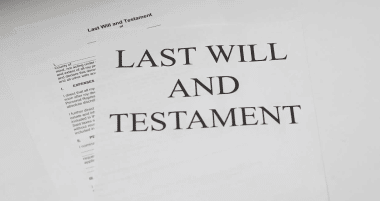Share
Take a look at two crucial Estate Planning documents. Learn more about the differences between wills and trusts and which might be more appropriate for your goals.
What’s the Difference Between a Will and a Trust?
A Will is a legal document that provides instructions for the distribution of one’s property immediately upon death.
A Trust is a legal entity created by one party (the Settlor), which gives property to another party (the Trustee) to hold for the benefit of a third party (the Beneficiary).
One crucial difference between Wills and Trusts is the longevity of a Trust. The instructions of a Will must be carried out (relatively) immediately, with any property distributed as instructed. What if you have willed your estate to your minor children? Would they get all your life insurance, real estate, cash, etc., all at once? Yes.
On the other hand, a Trust survives for as long as its instructions (or assets) provide. Accordingly, you maintain greater control over the distribution of your assets than with a Will. Trust instructions often designate funds for a beneficiary’s basic needs (e.g., your minor child’s food, shelter, education, healthcare, etc.). Likewise, more significant distributions can occur at scheduled intervals (e.g., at certain ages or years after your death.).
Which is best for me?
Everyone’s situation is different. However, I typically recommend creating a Trust if you have minor children, special needs family members, elderly dependents, or are looking to minimize Probate.
One form of Trust I frequently recommend is a Revocable Living Trust. With a Revocable Living Trust, you typically act as the Settlor, Trustee, and Beneficiary (or jointly with your spouse) during your lifetime. In life, you can change (or eliminate) the Trust at any time. Upon your death, property in the Trust transfers to the benefit of your successor beneficiaries without going through Probate. Revocable Living Trusts can be tremendously helpful for seamlessly holding or moving property to future generations with limited costs or hassles.

